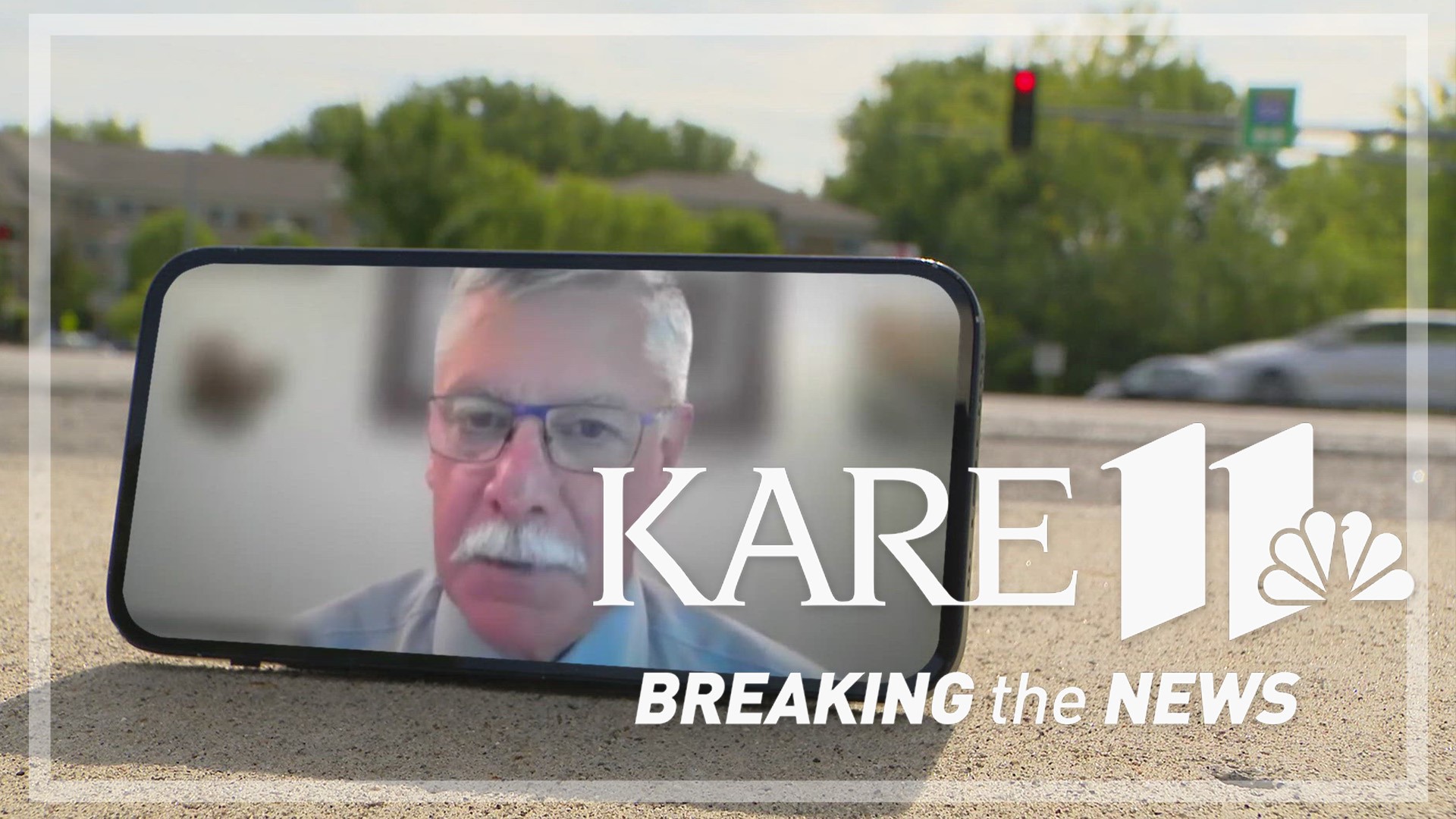MINNEAPOLIS — Many years, in many newsrooms, post-Labor-Day conversations include traffic violations. Driving while under the influence involves drunk driving, but also driving while high.
In the four years from 2013 to 2017, the Minnesota Department of Public said just over 8.000 DWI incidents in Minnesota involved drugged driving.
However, from 2018 to 2022, that was up to more than 15,800, which is a 96% increase.
This statistic doesn't just include weed. Law enforcement across the state are catching drivers with cocaine, meth and fentanyl.
The shocking data point of the 96% increase was announced as part of the most recent Labor Day DWI campaign that took place from Aug. 18 through Sept. 4.
The news release also came with a few anecdotes of what the officers encountered throughout those days. According to the release, a driver was pulled over for speeding and arrested for a DWI. Turns out the driver had over 145 grams of meth and cocaine mixed with fentanyl.
In a different story, a sheriff's deputy arrested the same driver twice in three days for DWI.
Director of the Department of Public Safety's Office of Traffic Safety, Mike Hanson said they share the stories for good reason.
"Numbers and data are only as good as the stories that go with them," Hanson said. "Obviously if someone is arrested three times in two days, there's some serious issues going on there with chemical addition, and I'm going to guess mental health issues as well."
While this year's numbers are cause for concern... with 19,045 drivers arrested for DWI in the state so far compared to 18,223 same time last year, a 4.5% increase, and the 96% increase in drugged driving arrests from 2018 to 2022, Hanson said it's simply a reflection of the times.
"The survey took place right at the beginning of the opioid epidemic, which continues to plague us to a certain extent," Hanson said. "Alcohol is still a challenge for us. I think the success part of this is at the same time that these drug impaired driving trends were emerging, Minnesota law enforcement really stepped up and they got better at being able to detect apprehend and process that drug impaired driving."
DPS even celebrates what's called DWI All-Stars. It's an event where, as a reward for arresting a lot of impaired drivers, law enforcement get to throw the first pitch at a Twins game. They also do "DWI Hat Tricks," where officers receive a special puck, if they pull over three impaired drivers in a single shift. If they do it again, the officer and the department receives a customized hockey stick.
While it may seem like a slightly odd milestone to celebrate to non-law enforcement folks, Hanson said DWI traffic stops are one of the most complex processes of being a patrolling officer.
"Officers that make multiple arrests during a single shift, deserve recognition, that is nothing short of outstanding, dedicated police work that is keeping our communities safe," he added.
When it comes to impaired driving, Hanson said no one drug is ever "better" than the other.
"Impaired is impaired is impaired, it doesn't matter what you're impaired by," Hanson said. "Alcohol, cannabis, illegal substances, prescription drugs, if you feel different, you'll drive different, and you'll probably drive dangerously."
With the legalization of recreational marijuana now added to the mix, Hanson had this to say.
"There's a huge misconception that cannabis isn't as bad as some of the other stuff," he said. "That is nothing but further from the truth, and compounding that, is the fact that cannabis is the most frequently encountered substance when we're working with somebody who is using two or more substances, which is getting to be a significant challenge on our road."
In terms of cannabinoid enforcement on the roads, DPS has received funding to start a one-year pilot project that involves oral fluid testing. The testing will be voluntary, meaning that the results cannot be used against the driver who has been arrested.
DPS said it will use the data from the pilot program to see if oral fluid testing is a sustainable and effective method to policing DWI using cannabis. The pilot program kicks off mid-October.
Watch more local news:
Watch the latest local news from the Twin Cities and across Minnesota in our YouTube playlist:
WATCH MORE ON KARE 11+
Download the free KARE 11+ app for Roku, Fire TV, Apple TV and other smart TV platforms to watch more from KARE 11 anytime! The KARE 11+ app includes live streams of all of KARE 11's newscasts. You'll also find on-demand replays of newscasts; the latest from KARE 11 Investigates, Breaking the News and the Land of 10,000 Stories; exclusive programs like Verify and HeartThreads; and Minnesota sports talk from our partners at Locked On Minnesota.
- Add KARE 11+ on Roku here or by searching for KARE 11 in the Roku Channel Store.
- Add KARE 11+ on Fire TV here or by searching for KARE 11 in the Amazon App Store.
- Learn more about the KARE 11+ app for Apple TV in the Apple App Store.
- Learn more about KARE 11+ here.

